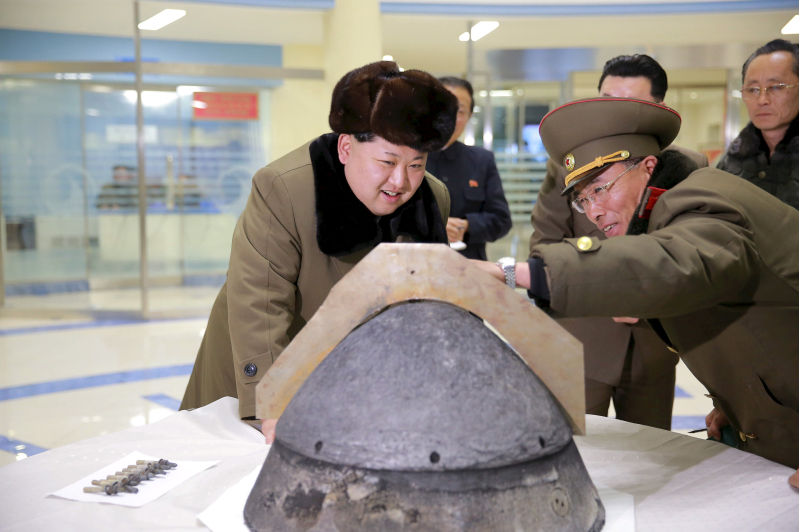
North Korea attempted to fire a missile from its east coast on Tuesday but the launch appears to have failed, South Korean officials said, in what would be the latest in a string of unsuccessful ballistic missile tests by the isolated country.
The launch attempt took place at around 5:20 a.m. Seoul time (4.20 p.m. ET), said the officials, who asked not to be identified. They did not elaborate.
Tension in Northeast Asia has been high since North Korea conducted its fourth nuclear test in January and followed that with a satellite launch and test launches of various missiles.
Japan put its military alert on Monday for a possible North Korean missile launch.
"North Korea shows no sign of abandoning the development of nuclear missiles and so we will continue to work closely with the U.S. and South Korea in response and maintain a close watch," Japanese Minister of Defence Gen Nakatani told a media briefing.
North Korea appeared to have attempted to launch an intermediate-range Musudan missile, South Korea's Yonhap News Agency said.
North Korea attempted three test launches of the Musudan in April, all of which failed, U.S. and South Korean officials have said.
Yonhap quoted a South Korean government source as saying the missile was likely to have exploded at about the time it lifted off from a mobile launcher.
China, North Korea's only major ally, called for the cessation of any action that would exacerbate tension.
"The situation on the peninsula remains complex and sensitive," Chinese Foreign Ministry spokeswoman Hua Chunying said at a briefing when asked about the launch.
"We think that all sides should avoid any actions that further worsen tensions."
China has been angered by North Korea's nuclear and missile tests and signed up to tough U.N. sanctions against its reclusive neighbor in March.
North Korean state media did not mention any missile launch.
A Pentagon statement said that a failed North Korean intermediate-range ballistic missile launch had been detected, but did not pose a threat to North America.
"We strongly condemn North Korea's missile test in violation of UN Security Council resolutions, which explicitly prohibit North Korea's use of ballistic missile technology," the Pentagon statement said.
IN A RUSH?
The North's flurry of weapons technology tests came in the run-up to the first congress in 36 years of its ruling Workers' Party this month, where young leader Kim Jong Un consolidated his control.
Tuesday's launch appears to have been its first missile test since then, and experts said it was unusual to test-fire a missile so soon after a failure.
The South Korean military said the successive tests could stem from Kim's order in March for further tests of nuclear warheads and ballistic missiles.
"They must've been in a rush. Maybe Kim Jong Un was very upset about the failures," said Lee Choon-geun, senior research fellow at South Korea's state-run Science and Technology Policy Institute.
North Korea has never carried out a successful launch of the Musudan missile, which theoretically has the range to reach any part of Japan and the U.S. territory of Guam.
The North is believed to have up to 30 Musudan missiles, according to South Korean media, which officials said were first deployed in around 2007.
"It could have cracks and something wrong with the welding," Lee said of possible causes for the latest failure. "But deployment before test-firing these to complete development seems unusual."
The attempted launch took place near the east coast city of Wonsan, one of the South Korean officials said, the same area where previous Musudan tests had taken place.
Separately, the international department of China's Communist Party said diplomat Ri Su Yong, one of North Korea's highest-profile officials, visited China on Tuesday, meeting the department's head, Song Tao.
The two expressed a desire to increase cooperation between their parties and work hard to promote regional peace and stability, the department said in a brief statement.
There was no indication of any link between the missile launch and Ri's visit.
Ri was foreign minister until he was named a member of the politburo during the recent Workers' Party congress.






